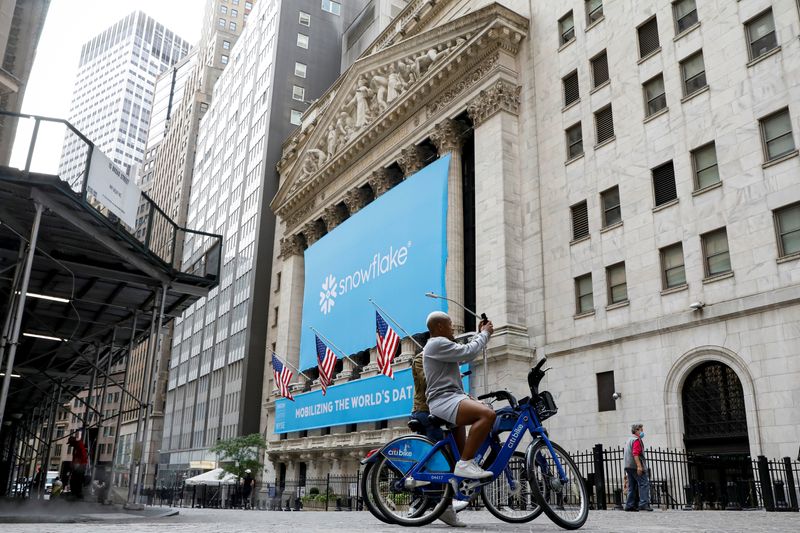This post was originally published on this site
https://i-invdn-com.akamaized.net/trkd-images/LYNXMPEG9041X_L.jpg
LONDON (Reuters) – The amount raised by European companies listing on the stock market fell by a third in the first nine months of the year, in contrast with Asia and the United States where an abundance of technology companies benefitted from the COVID-19 crisis.
Initial Public Offerings (IPOs) had raised $122 billion globally by the end of the third quarter, the most in two years, as central bank stimulus measures and low interest rates led to a generally hearty appetite for equities.
Funds raised rose by 75% in Asia and 13% in the Americas compared to the same period of 2019, but fell to just $9 billion in Europe, the lowest amount since 2012, Refinitiv data shows.
Overall, bankers made $8.43 billion from IPO fees, the biggest pot for the first nine months of the year since 2007, while U.S. fees hit an all-time high of $4.2 billion, the data shows.
Warren Buffett-backed data warehouse company Snowflake (N:SNOW) is the largest U.S. listing of the year so far, raising more than $3 billion and doubling in value on its market debut, as offices around the world adapt to remote working.
Meanwhile, Ant Group, the fintech arm of e-commerce giant Alibaba (NYSE:BABA), could steal the record for the largest IPO from oil giant Saudi Aramco (SE:2222), having filed for a dual listing in Hong Kong and on Shanghai’s Nasdaq-style STAR Market which could raise as much as $35 billion.
In Europe, e-commerce firm The Hut Group (L:THG) is among a handful of completed deals, with Polish online auction site Allegro preparing to come to market.
“Recent IPOs in Europe have demonstrated the real scarcity value attached to high quality tech issuers in EMEA: there is a structural underweight in the region,” said James Palmer, head of EMEA Equity Capital Markets (ECM) at Bank of America (NYSE:BAC).
“The more fundamental issue for the EMEA IPO market versus the U.S. is the latter’s appetite for smaller issuers and deal sizes, which is particularly relevant for many tech and biotech issuers,” Palmer added.
SP-ACKMAN STRIKES
The United States has also seen a proliferation of SPACs (Special Purpose Acquisition Companies), or blank cheque companies, emerge as a major IPO driver, with high profile investors such as Bill Ackman and Michael Klein raising billions of dollars.
A SPAC is a shell company that uses proceeds from its listing to buy another company, with the money raised before the target is identified.
The only such vehicle touted as potential London listing, Harvester Holdings, backed by London-born entrepreneur Martin Franklin, was pulled due to a lack of investor interest, sources said.
More broadly, global ECM activity rocketed a record 59% to $712 billion in the first nine months of 2020, with similar growth levels seen across the three regions, as companies scrambled for funds to weather the pandemic.
“Equity markets have been incredibly supportive of companies that have raised money on the front foot and those who have raised defensively as well, and rewarded proactivity,” said Aloke Gupte, co-head of EMEA ECM at JP Morgan.
He added that he expects IPOs and rights issues, where new shares are offered to existing shareholders, to continue throughout 2021, even if there are periods of heightened volatility.
(Graphic: European IPOs hit eight-year low – https://fingfx.thomsonreuters.com/gfx/mkt/bdwpkkywjpm/European%20IPOs%20hit%20eight%20year%20low.PNG)

